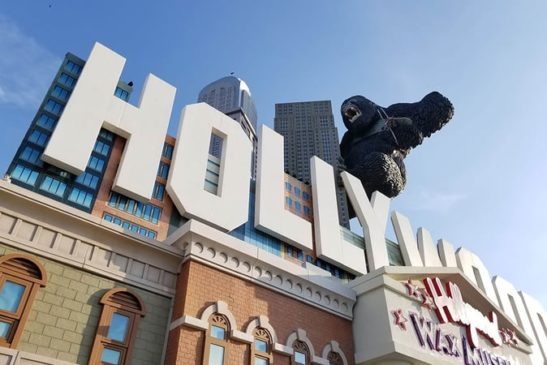Last month, the AMPTP published a proposal containing guidelines for AI use. Among other things, the proposal sought to address actors’ and writers’ concerns about data transparency and the use of artificial intelligence.
Hollywood studios may be able to legally train artificial intelligence (AI) models using works from human writers, according to a tentative labor deal reported by the Wall Street Journal (WSJ).
Citing people familiar with the case, the WSJ reports that the deal includes a victory for writers as they must be paid and credited for any work done whether or not some AI assistance was involved. The tentative deal was reached on Sunday with the Writers Guild of America after a strike that has lasted since May.
The Writers Guild of America (WGA) said it reached the deal with the Alliance of Motion Picture and Television Producers (AMPTP). The AMTPP represents the networks, streamers, and studios. For now, neither side has officially provided any details of the agreement. However, the WGA says it will publish terms of the deal immediately after its leaders vote and agree. The WGA votes could happen on Tuesday.
One of the problems that initiated the strike is the looming threat of artificial intelligence. Reports suggest that companies and executives were already planning to use AI to create and summarize scripts. In addition, executives hoped to use AI to create marketing materials.
The WSJ reports that global media and entertainment company Warner Bros Discovery already met with OpenAI to use ChatGPT for several related functions. Some of these include creating show descriptions for the company’s Max streaming service.
OpenAI developed and launched ChatGPT using publicly available data. Part of the grouse with creators is that the platform’s responses depend on training data from published works.
Hollywood AI Deal
Last month, the AMPTP published a proposal containing guidelines for AI use. Among other things, the proposal sought to address actors’ and writers’ concerns about data transparency and the use of artificial intelligence.
The guidelines include provisions stating that content created by generative AI will not officially be “literary material.’ Consequently, AI-produced content will not have any intellectual or literary protection. The proposal also states that writers will enjoy full rights and credits regardless of AI involvement.
In addition to full compensation, even where partial AI input was necessary, the guidelines require an AMPTP studio to reveal the origin of scripts when hiring writers to work on AI-generated scripts.
The strike has practically suspended most production efforts and has cost the California economy more than a few billion. The strike began on May 2 and is currently not near its end. The action affects about 160,000 actors under the American Federation of Television and Radio Artists (SAG-AFTRA) and the Screen Actors Guild, as well as 11,500 Hollywood writers.
California Economy Heavily Affected
California workers and businesses have been directly affected, especially those whose sources of income are directly tied to the industry. Reports suggest that several directors, caterers, prop makers, dry cleaners, hairdressers, and production assistants are severely suffering the loss of income. According to an estimate, the strike has cost production companies $3 billion between May and August.
Tolu is a cryptocurrency and blockchain enthusiast based in Lagos. He likes to demystify crypto stories to the bare basics so that anyone anywhere can understand without too much background knowledge.
When he’s not neck-deep in crypto stories, Tolu enjoys music, loves to sing and is an avid movie lover.



